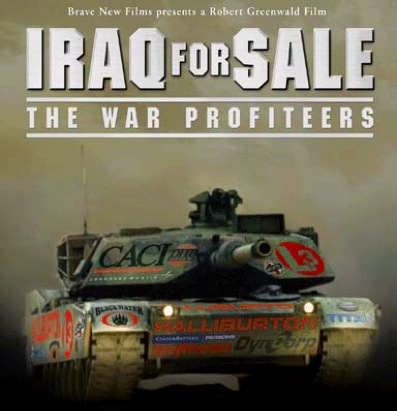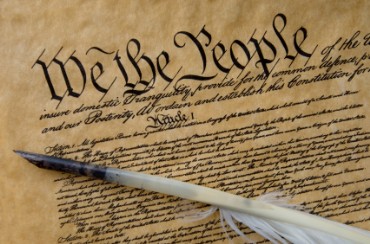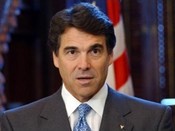Sarah Meyer’s blog site has a wealth of information – from the Project for a New American Century (PNAC) to Security Companies, i.e. Blackwater – well researched and time-lined. I suggest that you bookmark her site as you will find that you will be referring to it often.
This time line covers only two months – from September to November 2007 – and the amount of information is astounding. There is too much information to copy here so please be sure to continue reading the information at her site. Her index is set-up so that you can click on the title that you want to read next and it will take you right to that section.
NUCLEAR USA: SEPTEMBER – NOVEMBER 2007
by Sarah Meyer
Index Research
NUCLEAR-armed states are criminal states. They have a legal obligation, confirmed by the World Court, to live up to Article 6 of the Nuclear Nonproliferation Treaty, which calls on them to carry out good-faith negotiations to eliminate nuclear weapons entirely. None of the nuclear states has lived up to it. Noam Chomsky (10.08.07. khaleej times / ICH.)
The United States has irrational, hypocritical nuclear policies abroad. The foreign ‘enemies’ are those countries, like Iraq, with lots of oil and gas. America is its own worst ‘enemy;’ and appears, to the rest of the world, as the principal ‘terrorist.’
This research covers approximately two months in 2007 of American nuclear policies abroad, as well as those at home. Both are terrifying.
2. Who Is Pushing the Terror Button? Nuclear Egypt, India, (?) Iran, Israel, North Korea, Pakistan, Saudi Arabia, (?) Syria, United Kingdom. Added Update: Turkey.
3. Nuclear U.S.A.: Reports; Trident; Missiles; Articles; Ooops: Dangerous Mishaps 1 – 10; Three Non-nuclear Ooopsies; Homeland Security; Blackwater; War ‘Games’; ‘Terrorism’ Drills’; Martial Law?
1. US ARMS EXPORTS AFTER 9/11
U.S. Arms Exports and Military Assistance in the “Global War on Terror”
06.09.07. Center for Defense Information. CDI’s ongoing research continues to document some troubling trends. Using U.S. government data, CDI has documented that, in the five years after Sept. 11, total U.S. arms sales (Foreign Military Sales and Direct Commercial Sales ) to these 25 countries were worth four times more than those concluded in the five years prior to Sept. 11, and these countries received 18 times more total U.S. military assistance (Foreign Military Financing and International Military Education and Training) after Sept. 11 than before. Furthermore, 72 percent of the countries in this series received more military assistance and 64 percent conducted more arms sales with the United States during the five years after Sept. 11 than during the entire period between the end of the Cold War and Sept. 11 (FY 90-01). .. the United States has increased sales to new post Sept. 11 allies and has made several large and potentially troublesome arms deals, including a multi-billion dollar sale of F-16 fighter jets to Pakistan.. Total Direct Commercial Sales in the five years after Sept. 11 totaled roughly $66 billion more than in the five years prior, an 11-fold increase. .. Just as the United States is using arms sales as a reward to its allies in the “war on terror,” military assistance programs have also increased since Sept. 11. Includes pdf report on case studies for following countries: South Caucasus • Armenia • Azerbaijan • Georgia • South Asia: India • Nepal • Pakistan • Southeast Asia: Indonesia • Philippines • Thailand • Middle East: Bahrain • Oman • Yemen • Central Asia: Kazakhstan • Kyrgyzstan • Tajikistan • Turkmenistan • Uzbekistan • Africa: Algeria • Chad • Mali • Mauritania • Niger • Djibouti • Ethiopia • Kenya
Egypt to Build Nuclear Plants
29.10.07. Washington Post. Egypt’s president announced plans Monday to build several nuclear power plants _ the latest in a string of ambitious such proposals from moderate Arab countries. The United States immediately welcomed the plan, in a sharp contrast to what it called nuclear “cheating” by Iran.
Nuclear Agreement With US Rips India Apart
27.09.07. Pierre Prakkash, Liberation / Truthout. how the civilian nuclear agreement the Indian government has negotiated with the US may bring about the government’s dissolution.
Nuclear Deal With India May Be Near Collapse
16.10.07. Washington Post. Premier Cites Internal Opposition To Agreement Pushed by Bush. A controversial nuclear deal between the United States and India appears close to collapse after the Indian prime minister told President Bush yesterday that “certain difficulties” will prevent India from moving forward on the pact for the foreseeable future. … Neither government appeared eager to announce the setback to what had been billed as one of the Bush administration’s biggest foreign policy ‘achievements’. … the reluctance to admit that the deal is faltering contrasts with the fanfare when it was announced in 2005. … The agreement lays out a framework for peaceful nuclear cooperation that would eventually allow trade in nuclear reactors, technology and fuel between the two nations. It permits [permitted] India to reprocess nuclear fuel and opens the way for the United States to become a “reliable” supplier for India’s energy program.
White House Sees Life in Indian Nuclear Deal
17.10.07. NTI. The Bush administration expressed continuing hope yesterday that its nuclear trade deal with India would take effect next year, Agence France-Presse reported. The affirmation followed a Monday phone call between Indian Prime Minister Manmohan Singh and President George W. Bush in which Singh acknowledged facing strong domestic opposition to the agreement. The deal would give New Delhi access to U.S. nuclear material and technology, but left- and right-wing Indian critics have complained that U.S. conditions on the pact would give Washington undue influence over Indian affairs.
VIDEO INTERVIEW and transcript with Congressman Ed Markey
23.10.07. fas.org. On October 18, FAS hosted a news briefing on the status of the nuclear technology transfer agreement between the United States and India in light of its near collapse.
US cautions India against Iran pipeline
27.10.07, peninsulaqatar. The US is hoping that India would not move forward with the Iran-Pakistan-India gas pipeline project as Washington has imposed more sanctions on Tehran citing links to terrorism and weapons proliferation. … “We think at a time when the world should be imposing greater discipline on its interactions with (Iranian) companies and financial institutions and the Iranian government more broadly, that this is not the right path forward.” David McCormick, treasury undersecretary for international affairs, said.
U.S. Continues to Press India on Nuclear Deal
31.10.07. NTI. Current and former U.S. officials met yesterday with Indian opposition leaders to promote the nuclear trade agreement that has stalled in New Delhi, the Hindustan Times reported. … The trade pact would enable India to purchase U.S. nuclear technology and material in exchange for opening its civilian nuclear activities to international monitoring.
Time Limited to Close India Deal, Experts Say
02.11.07. NTI. Analysts say time is running out for India and the United States to finalize their nuclear trade agreement, the International Herald Tribune reported Wednesday. Progress has stalled while the Singh administration attempts to overcome resistance from parties on both ends of the political spectrum to the deal. Critics say Washington would receive undue influence over Indian policies through the agreement, which would provide New Delhi with access to U.S. nuclear material and technology in exchange for allowing international monitoring of its civilian atomic complex.
Indian Opposition Party Rejects U.S. Nuclear Deal
08.11.07. NTI. India’s main political opposition party yesterday rejected a proposal to ally with the Singh administration to push a stalled nuclear trade agreement with the United States through the Indian parliament, the Indo-Asian News Service reported.








